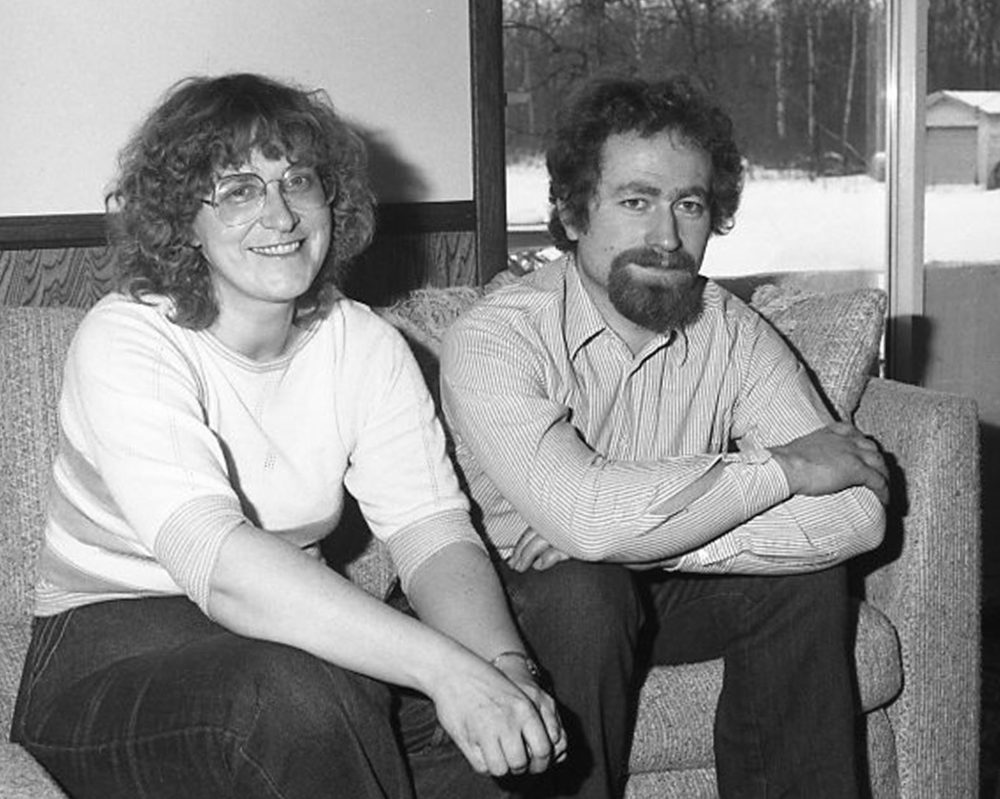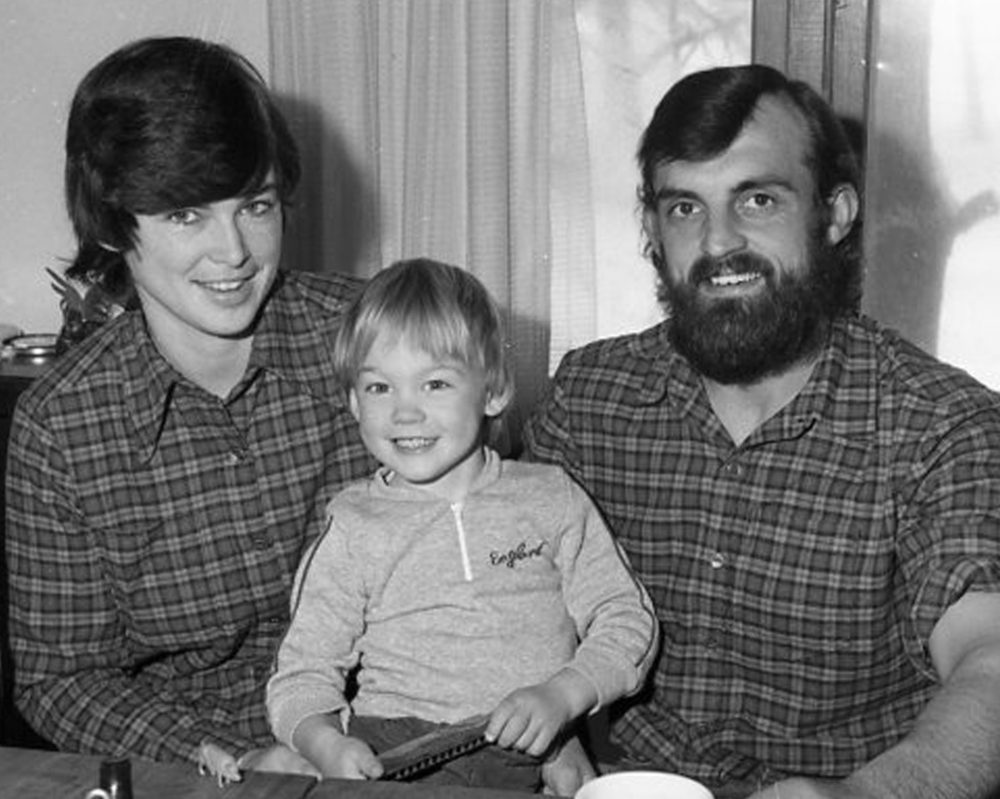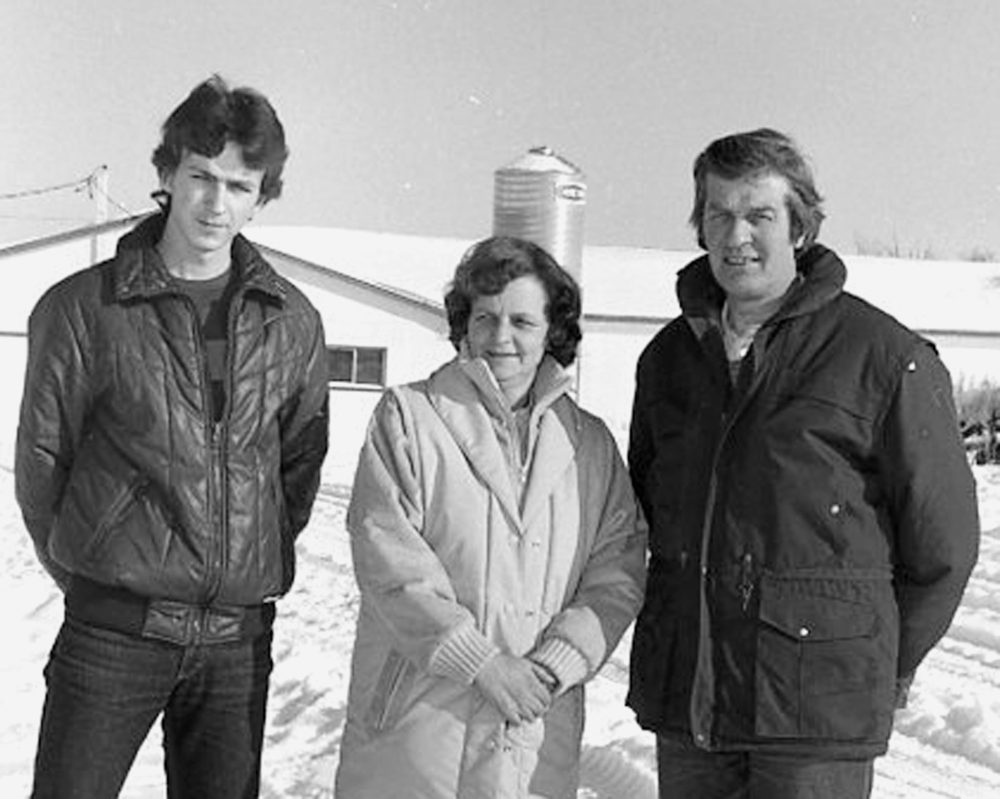COLUMN: Carillon Flashback 1985 – Farmers arrive in Canada
Advertisement
Carillon Flashback February 6, 1985
Europeans have adapted well to Manitoba farms
by WES KEATING

The drop in the value of the Canadian dollar in the early 1980s was among several factors which prompted dozens of Europeans to immigrate to Manitoba to take up farming.
Fred Hardy and Rod Siemens of the department of agriculture indicate the immigrants have by and large come from England, Holland, Germany, Austria and Switzerland.
Most of these new Manitoba farmers fall into one of three categories: Experienced farmers, who have come to Canada to give their grown children an opportunity to enter farming; young people with farming backgrounds, who felt they had no chance to enter farming in Europe; and people who view farming as a way of moving to Canada and eventually getting citizenship.
The La Broquerie Chamber of Commerce recognized newcomers at a social gathering in November. It was noted that of the 80 new households established in the area over the past five years, the majority came from England and Switzerland. Most, but not all, came when the value of the Canadian dollar was low relative to European currency and their property back home was selling at relatively inflated values.
While the European immigrants may have had some problems due to their own circumstances, their experiences reflect the experience of most people who have taken up farming in Manitoba in the last five years, Hardy and Siemens said.
The department of agriculture spokesmen do, however, point out some of the Europeans have experienced problems unique to them.
Some, for instance, did not research the local economy thoroughly enough and, as a result, paid inflated values for farms.
Others, perhaps prompted by the relatively low value of the Canadian dollar, spent too freely upon arriving in Manitoba.
The quality of the European farmer can range from very good to very bad, just as it does with native Manitobans, the ag department spokesmen said.
– with files from Tim Plett
Carillon Flashback February 20, 1985
Wanting to live in Canada prompts move to Manitoba
by WES KEATING
While it would have been difficult for them to begin farming in England, Sam and Anne Appleby moved to Manitoba in 1977, more because they wanted to live in Canada, than because they wanted to leave England.
In a recent interview with The Carillon, Sam pointed out his mother had 19 first cousins living in Manitoba.
“In the back of my mind, I always had this idea that I wanted to move to Manitoba.”
Appleby grew up on his father’s farm in Staffordshire in the British Midlands, where his mother’s relatives would occasionally visit and talk about Canada.
In 1973, Sam and a friend took a six-week vacation in Canada. Sam and his wife Anne moved to Canada June 14, 1977, shortly after getting married.
“After getting married, it’s time to strike out on your own,” Sam said.
In addition to Sam’s longstanding dream of moving to Canada, the Applebys cite practical reasons for the move. At a price of 2,000 pounds per acre (between $4,000 and $6,000 CAD) land in England is out of reach for most people. At the time they left, 60 pounds per week represented a good salary.
“We would have worked things out, but we wouldn’t have gotten ahead with the same speed.”
Unlike many of the Europeans who have immigrated to Manitoba in recent years to take up farming, the Applebys did not arrive with enough money to buy a farm immediately.
After moving, Sam took a job in the Balmoral area as a farmhand with one of his mother’s relatives. Sam pointed out it was the promise of this job that resulted in their visa being granted.
In 1979, Sam took a job providing a dairy relief service for the Manitoba Milk Marketing Board. This job, which saw him take care of dairy herds while owners were absent, brought him to the Steinbach area for the first time. The job gave him a chance to see different farming areas across Manitoba.
“This seemed a good area. Maybe it doesn’t have the best soil, but overall it is very favourable.”
The Applebys began to deal on their farm, which was then owned by Joe and Renate Bachmeier, in fall of 1979. They used money saved since moving to Canada to make a deposit and took over the farm Dec. 1 of that year.
While it took them longer to get on their own farm, the fact they came here without financing, hasn’t really hurt, Sam explained.
“After we took over the farm we had no surprises, because we had been here three summers and two winters.”
His father’s farm in England had just pasture land and hay, so Appleby’s biggest challenge has been the field work in Canada.
“I’m growing crops now I never had anything to do with before. I had a heck of a lot to learn.”
The Appleby’s credit Bachmeier with helping them adjust to farming in Manitoba.
“Joe helped me seed the first year and brought a couple of chickens for the freezer that winter.”

“The Manitoba winter is just one of those things you accept,” Sam said, noting winter often causes greater problems in England than here, because people there are not prepared.
The Applebys agreed they miss the friends they grew up with. They also miss the British pubs, both added, pointing out the English pub is not so much a place where people go to drink as it is a place to meet people and socialize.
“If I wanted to see my sister, I’d go look for her in the pub. Likely as not, I’d find her and she would be drinking a Seven-Up,” Anne said.
However, while they miss their old friends, loneliness has proved no real hardship for the Applebys, because they have lots of family here.
Anne added they probably have spent more time with their parents since moving to Canada than they did while living in England.
During a two-week visit, they get to know someone better than they did while living just a short distance apart, she said. Last year, visitors from England spent 13 weeks with them.
“We’re happy we made the decision to come here; we’re here to stay.”
Carillon Flashback February 6, 1985
New Canadian farmers are urged to be flexible
by WES KEATING
Lorenz and Waltreud Schlosser, who moved to the Sarto area from southern Germany in the fall of 1982, advise Europeans considering a move to Manitoba to farm, to be prepared to change the way they do things.
“Some guys think that what they’ve learned in Europe can be done here, but we have to switch over to Canadian methods.”
The Schlossers cite a number of reasons for leaving Europe, including the high cost of living and better prospects for their children, Christian who is 10 and six-year-old Ingrid.
In Europe, the children could look forward to spending three years after school learning a job, spending time in the military and “then no job.”
Lorenz was a surveyor in Germany and Waltreud a nurse, but they chose to take up farming because it had been a boyhood dream for Lorenz.
“When I was a little boy, I said I would be a farmer. In Europe, it would cost millions to start farming; so if I wanted to be a farmer, I had to come here.”
They chose Manitoba, because in Quebec they would have to learn French, Ontario is too much like Europe and Alberta is too expensive.
The Schlossers first began thinking of a move to Canada in 1981, after Lorenz and his brother visited a friend who had taken up farming in Alberta.
After Lorenz returned to their home in Rosenheim, Germany, they began the process of obtaining a Canadian visa.
Within a few weeks of arriving in Manitoba, the Schlossers were able to find the farm they now live on.
“It was a surprise. When you want a farm quickly, it is usually very hard to find one.”
One advantage of this farm was that the previous owner had a contract with Cargill Limited to produce hogs and they were able to take his contract over as it was.
As a result, they were able to get their first cheque from Cargill two weeks after moving in. If they had taken over an empty barn, it would have been seven months before they got paid, the Schlossers said.
The first three or four months on the farm were difficult, as they had to learn how to operate a large farrow-to-finish operation, while learning a new language at the same time.
“That first winter was very hard. We had to learn how to deal with things like frozen water pipes and we did not have warm enough clothing for a Manitoba winter.”
Since then, they have become accustomed to the cold and have learned how to deal with the problems caused by it.
The Schlossers actually consider the mosquitoes of summer a more difficult problem to adjust to than the cold of winter.
A year-and-a-half after buying the farm, the Schlossers converted it from a farrow-to-finish operation to strictly a farrowing operation.
They have adjusted well to farming in Manitoba, Lorenz said, adding their barns are only around five years old, so major expenditures for new barns will not likely be needed for some time.
“I’m happy. I have my own farm, I’m my own boss; I can do whatever I want.”
The Schlossers enjoy the lifestyle of Manitobans. They have, indeed, found life here to be much less hurried and stressful than in Europe.
Even school has proved less stressful, Waltreud said, and their son Christopher enjoys school here much more than he did back home.

“We’re happy here. We have all that we need,”
– with files from Tim Plett
Carillon Flashback February 27, 1985
Canada is seen as the only opportunity to farm again
by WES KEATING
Theo and Riet Van Der Kroon moved to Manitoba with their four sons in 1980, to be able to return to farming a decade after the Netherlands’ government expropriated his father’s farm and they had to give up farming as an occupation.
Theo and Riet, accompanied by sons Nick, Art, Frank and Theo, moved to the Giroux area in December, 1980. They now milk 100 cows.
Theo grew up on his father’s dairy farm near Amsterdam. He worked on the farm until it was expropriated for industrial use in 1970. Following expropriation of the farm, Theo worked in the construction industry in Amsterdam.
In 1979, the Van Der Kroons came to Manitoba on a holiday to visit Riet’s sister and decided, if all four of their sons agreed, they would like to move to Canada.
“I was born to farm. I lived on a farm for 35 years, but I could never buy a farm in the Netherlands, as land is too expensive. If we wanted to farm, we had to move.”
In August of 1980, Theo and Nick spent two weeks in Manitoba looking at farms and decided to buy land and buildings without a herd.
During their first year in Manitoba Theo worked for another dairy farmer.
“It was good to work for somebody else, as it gave me a chance to learn how things are done in Manitoba.”
In Holland, fields are surrounded by water-filled ditches rather than fences and yields tend to be considerably higher, Theo said. A crop which might yield an average of 50 bushels per acre in Manitoba might produce as much as 120 bushels per acre in Holland.
“It is not that farmers are better in Holland, but that they are farming better land and get more rain.”
Buying only land and buildings gave the Van Der Kroons the opportunity to take time in setting up their herd of 100 milking cows.
The differences in weather between Manitoba and Holland have proved no real hardship for the Van Der Kroons.
Winter here is colder, longer and it snows more, Theo said, indicating winter lasts six months here, compared to three or four months in Holland.
“In Manitoba, when it’s winter, it’s winter, when it’s summer, it’s summer. In Holland, one day it’s winter, the next day it’s raining.”
The Van Der Kroons enjoy the life they lead in Manitoba. They particularly appreciate the wide, open spaces of Manitoba and the less-hurried lifestyle.
“The part of the Netherlands we lived in is one big city and people hurry over here and hurry over there.”
Riet expressed appreciation for the “nice sunshine” of Manitoba compared to the frequent rain and overcast conditions in their native land. She enjoys the fact you “can see for miles and miles” and can take a drive on the highway and see “just a few cars.”
“Holland is a nice country,” Theo said, but hastened to add, “we’re glad we made the decision to come here.”
All four boys in the family supported the decision to move to Manitoba, Nick is now a computer programmer in Winnipeg, Art is studying computer programming, Frank is working on the farm and Theo Junior is a high school student.
The Van Der Kroons suggests to others considering a similar move “to know what you want to do” in Canada.
They must also be willing to learn from Canadians who have lived here a long time and know the reason for doing things differently.
“Some people come here and try to do things exactly as they did in Holland. Those people get into trouble.”
– with files from Tim Plett
